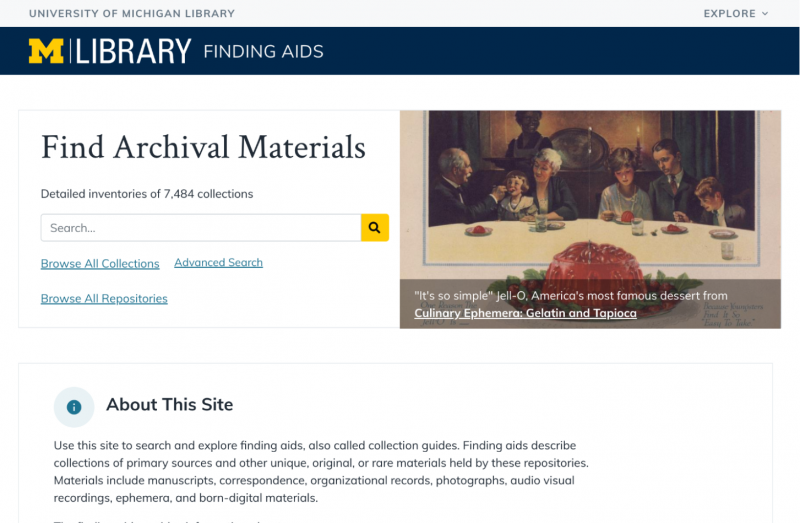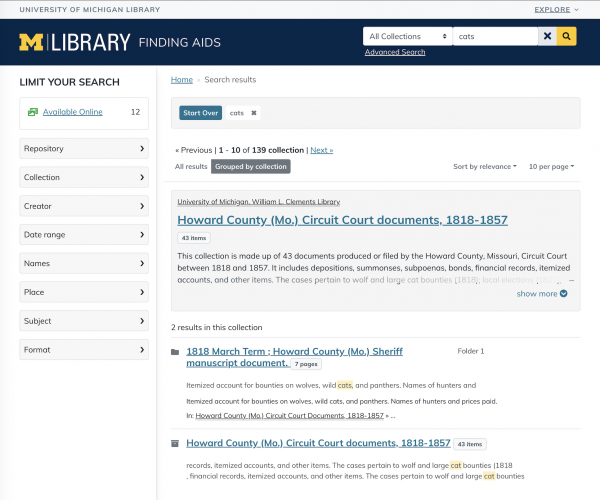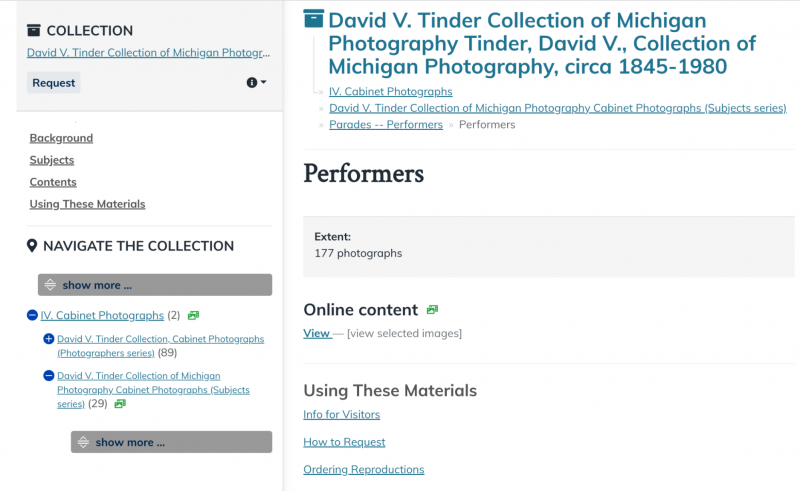U-M Library is launching a new version of our Finding Aids site in early 2023, replacing a homegrown system that’s been in use for over 20 years with ArcLight, an open-source system widely used by academic libraries and archives. The site is currently available as a public beta for preview and will be available at the same URL going forward.
At a basic level, finding aids are written guides for collections of archival and special collections materials that explain what each collection contains and how the materials are organized. As many of these materials are physical items that have not been digitized or cataloged, finding aids describe the contexts of boxes or folders to help researchers request materials relevant to their work, which can then be viewed in designated reading rooms.
The Finding Aids system hosts finding aids created by our content partners, listed below, and allows for searching and navigating details about materials within the collections.
Content partners include:
- University of Michigan Bentley Historical Library
- University of Michigan Special Collections
- University of Michigan William L. Clements Library
- Central Michigan University Clarke Historical Library
- University of Michigan History of Art Visual Resources Collection
- Archives of Michigan
What's New
The new Finding Aids site brings together finding aids from our content partners in a more consistent and cohesive site that is mobile-friendly and evaluated for compliance with current accessibility standards (WCAG 2.1 A and AA).
Screen capture of the home page of the new Finding Aids site with call to action text Find Archival Materials above a search box and next to a featured image of a Jell-O dessert advertisement from the Culinary Ephemera collection.
The updated site allows searching across all collections more easily. You can also choose to limit your search to within a collection. Additionally, search results provide broader matches on search terms to surface more items that may be related to keywords, rather than only matching exact phrases. You can choose whether to view the results grouped within the collection they reside in or as individual results.
A cropped view of the screen, showing the Finding Aids search box with options for All Collections or This Collection.
The results page features filters to narrow your results set to items from a specific repository or collection. Additional filters for creator, date range, names, place, subject and format help manage large results sets. You can also limit to only results that include digitized content.
The results page includes filters and the option to group by collection or view results individually.
When viewing a collection’s finding aid view, the new site makes it easier to spot where digitized versions are available for the content referenced. While Finding Aids are designed to describe a collection of physical materials, some of these materials have been digitized and made available through our Digital Collections site. Items with a shared collection ID are marked with an “Available Online” icon and include a link to Digital Collection results that share the same collection identifier code.
What's Not Changing
The content of the finding aids, for the most part, will be the same as the previous system -- of course, with new finding aids being created and added over time.
Additionally, the finding aids system will continue to enable researcher requests for materials in the same manners as before, which match the needs of our content partners in managing their individual reading rooms. Any existing user accounts for managing material requests will continue to work, and new users will create accounts in the same way.



